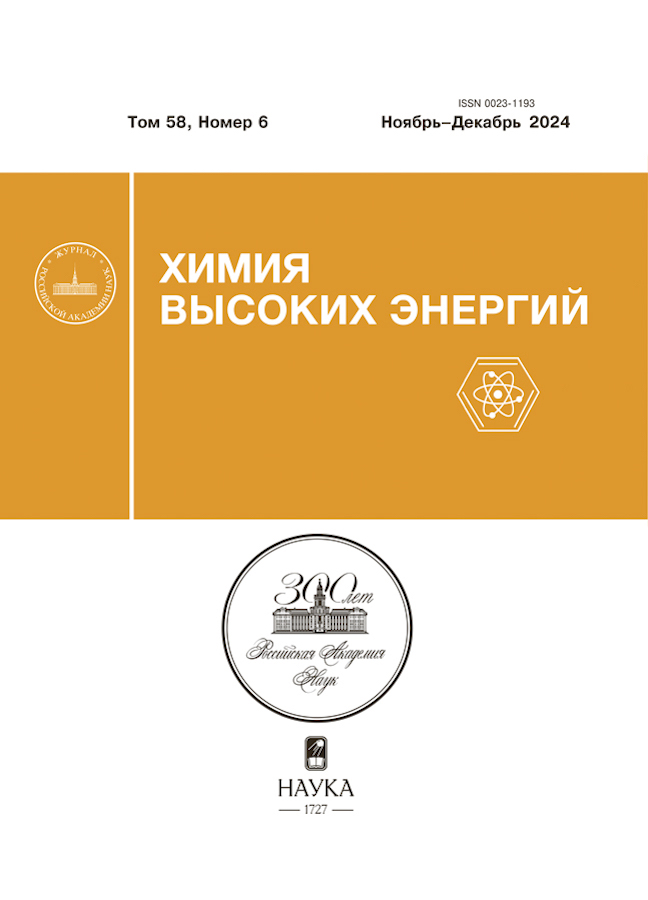CO2-methane conversion
- Authors: Obrivalin M.V.1,2, Subbotin D.I.1,2, Popov S.D.1, Denisov Y.S.1,2, Popov V.E.1
-
Affiliations:
- Institute for Electrophysics and Electrical Power, Russian Academy of Sciences
- Saint-Petersburg State Technological Institute (Technical University)
- Issue: Vol 58, No 6 (2024)
- Pages: 423-427
- Section: GENERAL QUESTIONS
- URL: https://cardiosomatics.ru/0023-1193/article/view/681208
- DOI: https://doi.org/10.31857/S0023119324060017
- EDN: https://elibrary.ru/TIHHQJ
- ID: 681208
Cite item
Abstract
In this study, a plasma-chemical method of methane conversion with CO₂ was considered as a potential means of producing hydrogen while simultaneously reducing carbon dioxide emissions. In order to achieve this, a series of experiments were conducted in order to evaluate the composition of the resulting fusion gas and the arc parameters. During the course of this work, it was found that modifying the volume of hydrogen present during the reaction resulted in an increase in the average mass temperature, which in turn led to an increase in the electrical conductivity of the arc. This finding suggests that the electrical parameters of the arc can be employed to estimate the quantity of hydrogen present in the resulting fusion gas.
Full Text
About the authors
M. V. Obrivalin
Institute for Electrophysics and Electrical Power, Russian Academy of Sciences; Saint-Petersburg State Technological Institute (Technical University)
Author for correspondence.
Email: maxim.obryvalin2@gmail.com
Russian Federation, St. Petersburg; St. Petersburg
D. I. Subbotin
Institute for Electrophysics and Electrical Power, Russian Academy of Sciences; Saint-Petersburg State Technological Institute (Technical University)
Email: maxim.obryvalin2@gmail.com
Russian Federation, St. Petersburg; St. Petersburg
S. D. Popov
Institute for Electrophysics and Electrical Power, Russian Academy of Sciences
Email: maxim.obryvalin2@gmail.com
Russian Federation, St. Petersburg
Y. S. Denisov
Institute for Electrophysics and Electrical Power, Russian Academy of Sciences; Saint-Petersburg State Technological Institute (Technical University)
Email: maxim.obryvalin2@gmail.com
Russian Federation, St. Petersburg; St. Petersburg
V. E. Popov
Institute for Electrophysics and Electrical Power, Russian Academy of Sciences
Email: maxim.obryvalin2@gmail.com
Russian Federation, St. Petersburg
References
- IEA (2023), Global Hydrogen Review 2023, IEA, Paris https://www.iea.org/reports/global-hydrogen-review-2023, Licence: CC BY 4.0
- Veras T.S., Mozer T.S., Santos D., Cesar A.S // International Journal of Hydrogen Energy. 2017. V. 42. №. 4 P. 2018–2033.
- Nikolaidis P., Poullikkas A. // Renewable and Sustainable Energy Reviews. 2017. V. 67. P. 597–611.
- MØller K.T., Jensen T.R., Akiba E., Li H-W. // Progress in Natural Science: Materials International. 2017. V. 27. № 1. P. 34–40
- Dincer I., Acar C. // International journal of hydrogen energy. 2015. V. 40. No. 34. P. 11094–11111.
- Rutberg P.G., Nakonechny G.V., Pavlov A.V., Popov S.D., Serba E.O., Surov A.V. // Journal of Physics D: Applied Physics. 2015. V. 48. I. 24. P. 245204
- Rutberg P.G., Kuznetsov V.A., Serba E.O, Popov S.D. // Applied Energy. 2013. V. 108. P. 505–514.
Supplementary files












